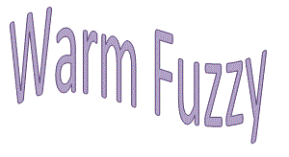I am a model
Ok, so. Maybe my title is a bit misleading…..but let me explain.
As we quickly come upon the close of the semester, I am more vastly aware of how important my role is as an educator. Providing much supervision this semester to several master’s counseling students I have learned that so much acquisition of knowledge comes from doing and seeing others in action. It brings words studied on pages to life and provides deeper understanding of application. This leads me into thinking that a great deal of emphasis needs to be on what I model to my students in addition to what I am teaching them. After all, how can I expect greatness from them if I am not willing to give them my greatest efforts in return?
Parker Palmer comments in A New Professional: The Aims of Education Revisited that “as mentors we must embody what it looks like”, which is how I feel it should be in higher education. Not a sage on the stage telling the students to “do as I say” but not themselves be doing those very things. Rather, share their experiences, vulnerabilities, and remain committed to the heart you have for your profession. Which reminds me of a quote I once read, claimed to have been spoken by Rosa Parks:
Each person must live their life as a model for others.
Rosa Parks simply sat on a bus. She did not lead a movement, but her brave actions to remain in her seat did inspire courage and bravery in the many, many others who did act. Today, her name is well known and still provides modeling for those of us who wish to stand (or sit in her case!) for something for which we are passionate. Her small, but impactful action caused a ripple effect that has been massive.
As educators, we should strive to do the same. Make passionate, deep, impactful actions which cause ripple effects in our students. Our students will then know what it looks like to see the lessons in action, who will then in turn have impact on others. And so on and so forth.
How do I plan to do this? I am not fully sure. My idea is that I will strive to make my profession strong, ethical, amazing, and helpful. For me, that means continuing my own education, yes even after the PhD is complete. It means advocating for others who need assistance having their voices heard. It means reading or writing articles; meeting with clients; creating pedagogy that will stimulate the next generation. So I guess I will largely take it day by day, class by class, and student by student. We will learn and grow from each other.
So I am a model. Not the runway type, glossy magazine cover, television advertisement kind of model. I am a role model. I am not perfect, but hey, that just normalizes things and lets my students know that it is perfectly find to be human!
 Once upon a time, a long time ago, Claude Steiner wrote a little story called A Warm Fuzzy Tale. It tells about how when people were born they were given small, soft fuzzy bags and anytime they would reach into this bag they could pull out a Warm Fuzzy. The small fuzzy was about the size of a child’s hand and would instantly grow a little larger when you would remove it from the bag. When given away, the little fuzzy would snuggle up to the person and give them a good feeling all over. Warm Fuzzies were given freely and were in abundance; but one day a bad (yet enterprising) witch stirred up jealousy and envy in the people causing them to become stingy with giving away their Warm Fuzzies. Eventually the witch even started giving out bags, similar to the fuzzy bags for free, but these bags contained Cold Pricklies. Eventually people started to give the Cold Pricklies away rather than the Warm Fuzzies. Even the children, observing the adults, began to change their behaviors on giving Warm Fuzzies or Cold Pricklies. The situation became quite complicated as people began doing all kinds of things for Warm Fuzzies. You can read the whole short tale
Once upon a time, a long time ago, Claude Steiner wrote a little story called A Warm Fuzzy Tale. It tells about how when people were born they were given small, soft fuzzy bags and anytime they would reach into this bag they could pull out a Warm Fuzzy. The small fuzzy was about the size of a child’s hand and would instantly grow a little larger when you would remove it from the bag. When given away, the little fuzzy would snuggle up to the person and give them a good feeling all over. Warm Fuzzies were given freely and were in abundance; but one day a bad (yet enterprising) witch stirred up jealousy and envy in the people causing them to become stingy with giving away their Warm Fuzzies. Eventually the witch even started giving out bags, similar to the fuzzy bags for free, but these bags contained Cold Pricklies. Eventually people started to give the Cold Pricklies away rather than the Warm Fuzzies. Even the children, observing the adults, began to change their behaviors on giving Warm Fuzzies or Cold Pricklies. The situation became quite complicated as people began doing all kinds of things for Warm Fuzzies. You can read the whole short tale  “Ok class, clear your desks and take out a blank sheet of paper.”
“Ok class, clear your desks and take out a blank sheet of paper.”